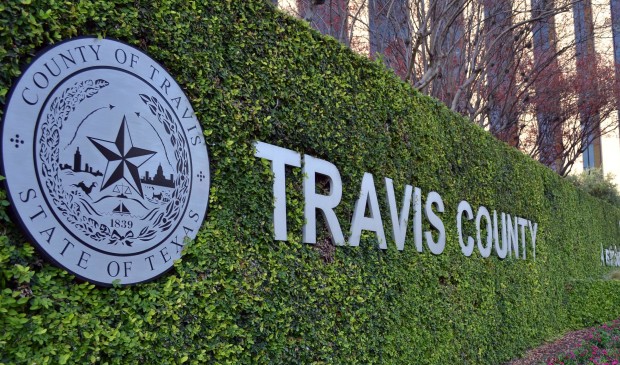County commissioners unhappy with vacation policy proposal
Wednesday, April 5, 2017 by
Jack Craver The Travis County Commissioners Court isn’t making nearly the progress it hoped on reforming vacation policy for county employees.
Currently, county law enforcement personnel are allowed to accrue unlimited vacation, while civilian employees are allowed to accrue only up to 240 hours. Both types of employees, however, can only cash out a maximum of 160 hours.
In the hopes of establishing a system that treats both types of employees equally as well as prevents sheriff’s deputies from banking up lengthy periods of vacation to essentially get an early retirement, a working group of county department heads has been meeting with representatives of employee unions over the last four months to try to reach a consensus.
The group believed it had reached a deal in January that would allow all county employees to accrue up to 400 hours of vacation. It also proposed a voluntary three-year buyback program under which law enforcement employees could cash out the hours they had accrued under the current system at a two-for-one rate, meaning that a worker would cash out 80 hours but only get paid for 40. Law enforcement employees would also get to keep the hours they had accrued under the current system on top of the up to 400 hours they could accrue under the new system. Staff estimates that the buyback program would cost the county $1.6 million over three years.
The deal ultimately fell through, however, due to opposition from two associations representing Sheriff’s Office employees.
Subsequent meetings in February and March failed to garner a consensus, although employee unions identified two carrots that they would accept in exchange for the new accrual policy: increased pay for employees working late shifts (an estimated annual cost to the county of $2.9 million) and a boost in the number of vacation hours employees can cash in from 160 to 200.
Despite the opposition from the police groups, county staff recommended on Tuesday that the court adopt the plan without the two union-backed measures.
The response from the court was lukewarm, at best.
County Judge Sarah Eckhardt said that 400 hours of accrued vacation is far more than most other large counties in the state offer their employees. Both civilian and sworn employees of Dallas County and Harris County receive a maximum of 240 and 280 hours of accrued vacation, respectively, she noted.
“The recommendation of a 400-hour cap is way outside the norm,” she said, although she later acknowledged that it would put county employees in line with what city of Austin employees receive.
Furthermore, Eckhardt pushed back on the “narrative” that Sheriff’s Office employees were accruing large amounts of vacation because they were unable to get off work. She cited figures showing that the average sheriff’s deputy was using their vacation time, which she said was “a good thing” for their health and well-being.
Finally, Eckhardt expressed frustration that other issues, including late-shift pay, was being brought into what she had expected to be a narrow discussion of vacation policy.
Commissioner Gerald Daugherty went a step further, saying he was “disgusted” with the stubbornness exhibited by the employee associations and resented that the groups had said they would support the other changes only if the county increased pay for late shifts. Nevertheless, he said he understood why cops might receive different benefits or expect higher pay for working nights.
“I had a daddy who worked graveyard shift and he got a little more money for it,” he said. “I understand that.”
The commissioners agreed not to take action on the issue, resolving to discuss it further at a work session in the coming weeks.
Carol Guthrie, business manager for AFSCME, which represents mostly civilian county employees as well as some law enforcement employees of the Fire Marshal’s Office and the county constables, told the Austin Monitor that the county was neglecting to address the source of the problem, which she said was understaffing in the Sheriff’s Office.
“We’re saying there is a retention problem in the Sheriff’s Department,” she said. “We need to look at all angles on why that exists and fix the root cause, and then we can do the rest.”
In another interview, Nate Gillespie, secretary of the Travis County Sheriff’s Officers Association, suggested that the statistics cited by the judge “speak to a story that doesn’t describe what’s happening” for officers working in the Travis County Jail.
“I think we have a lot of work to do and a pretty long way to go before we get to the bottom of it, with the actual numbers,” he said.
The Austin Monitor’s work is made possible by donations from the community. Though our reporting covers donors from time to time, we are careful to keep business and editorial efforts separate while maintaining transparency. A complete list of donors is available here, and our code of ethics is explained here.
You're a community leader
And we’re honored you look to us for serious, in-depth news. You know a strong community needs local and dedicated watchdog reporting. We’re here for you and that won’t change. Now will you take the powerful next step and support our nonprofit news organization?











